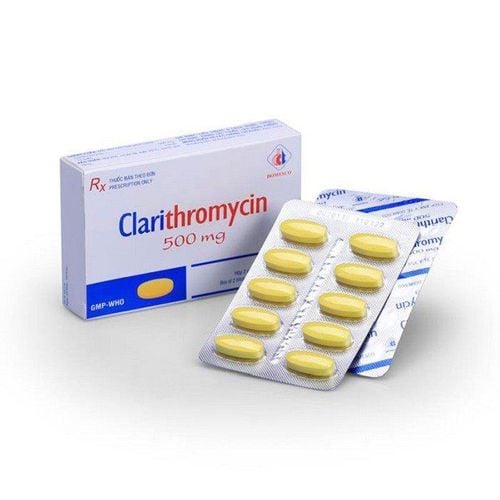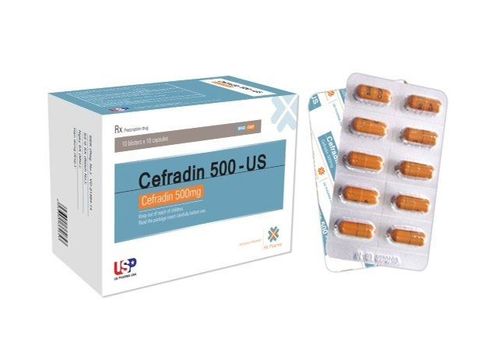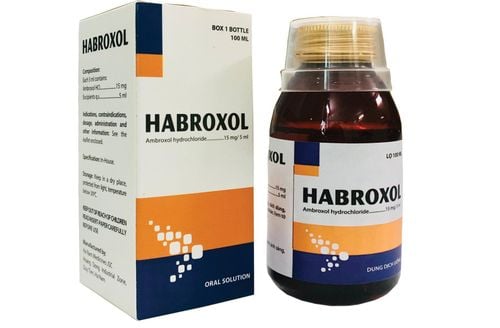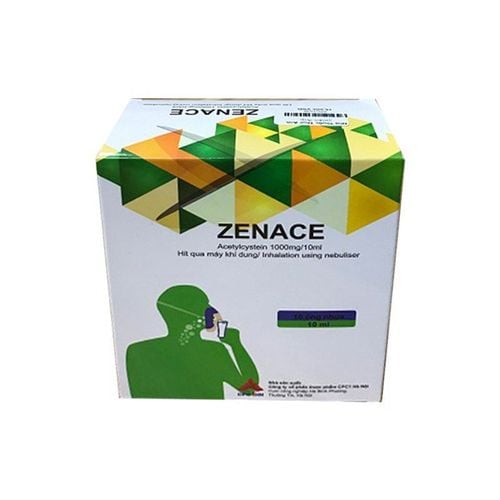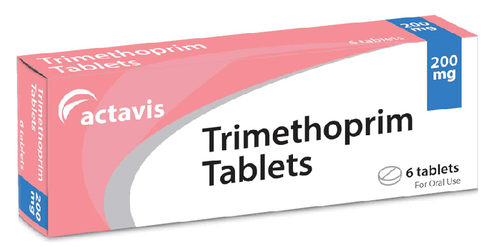This is an automatically translated article.
Trimeseptol drug is made in the form of tablets, with ingredients including Sulfamethoxazole and Trimethoprim. The drug is used in the treatment of infections with susceptible microorganisms.
1. Uses of the drug Trimeseptol
Trimeseptol contains 400mg Sulfamethoxazole and 80mg Trimethoprim. Therefore, the drug is called Trimeseptol 80mg or Trimeseptol 480mg. Sulfamethoxazole is an antibiotic belonging to the group of Sulfonamides, which competitively inhibits bacterial cells in the synthesis of folic acid. Trimethoprim has a structure containing the pyrimidine group, which is an antibiotic that helps prevent the bacterial enzyme Dihydrofolate reductase from working. The combination of these two components helps to prevent two consecutive stages of folic acid metabolism, leading to inhibition of bacterial synthesis of purine, thymine and DNA. This synergistic mechanism also helps fight the development of drug resistance in bacteria, expanding the antibacterial spectrum, which is essential for the treatment of the disease.Indications for use of Trimeseptol: Used to treat infections caused by susceptible bacteria such as:
Urinary tract infections: Uncomplicated lower urinary tract infections, chronic recurrent urinary tract infections in adult women, infectious prostatitis; Respiratory tract infections: Exacerbation of chronic bronchitis, pneumonia and acute otitis media in children, acute cheek sinusitis in adults, Pneumocystis carinii pneumonia; Gastrointestinal infections: Typhoid, bacillus dysentery. Contraindications to the use of Trimeseptol:
Patients with hypersensitivity to sulfonamides, trimethoprim or other components of the drug; Patients with severe renal impairment but plasma concentrations of the drug cannot be monitored; People with megaloblastic anemia (due to folic acid deficiency); Children under 2 months old, pregnant women or nursing mothers.
2. Usage and dosage of Trimeseptol
Usage: Orally. Patients should take the tablet with 1 cup of 150-250ml of filtered water. When should trimeseptol be taken? To limit the risk of gastrointestinal irritation, patients should take the drug with meals.
Dosage:
Uncomplicated lower urinary tract infections: Adults: 2 tablets/time x 2 times/day, treat for 10 days or take 1 dose of 4 tablets/day, treat at least 3 or 7 day; Children: 8mg trimethoprim/kg + 40mg sulfamethoxazol/kg, divided into 2 times, treatment for 10 days; Chronic recurrent urinary tract infections: Use low dose 40mg trimethoprim + 200mg sulfamethoxazole daily or take 1-2 tablets x 1 or 2 times/week; Chronic bronchitis in adults: 2 - 3 tablets/time x 2 times/day, treatment for 10 days; Acute otitis media, acute pneumonia in children: 8mg trimethoprim/kg + 40mg sulfamethoxazol/kg, divided into 2 times, treated for 5-10 days; Pneumocystis carinii pneumonia in children and adults: 20mg trimethoprim/kg + 100mg sulfamethoxazol/kg/day, divided into 4 times, treatment for 14-21 days; Bacillary dysentery: Adults: 2 tablets/time x 2 times/day, treat for 5 days; Children: 8mg trimethoprim/kg + 40mg sulfamethoxazol/kg, divided into 2 times, treatment for 5 days. *Dosage for patients with renal impairment: Adjust according to creatinine clearance:
Over 30ml/min: Use usual dose; From 15 - 30ml/min: Reduce dose by 1⁄2 compared to usual; Less than 15ml/min: Do not use the drug. Overdose: When using Trimeseptol in overdose, patients may experience symptoms of anorexia, nausea, vomiting, headache (even unconsciousness), hematopoietic system disorders, jaundice, myelosuppression, ... Before the situation of overdose, the patient should be hospitalized, emergency immediately. Management measures include induction of vomiting, gastric lavage, and acidification of urine to increase elimination of trimethoprim. Not only that, if there are signs of myelosuppression, patients should take leucovorin (folinic acid) 5-15mg/day until hematopoietic system is restored.
Missed dose: When a dose of Trimeseptol is forgotten, the patient should take it immediately. If it is almost time for your next dose, skip the missed dose and take the next dose as scheduled.
3. Side effects of Trimeseptol Some side effects patients may experience when using Trimeseptol include:
Common: Fever, nausea, vomiting, diarrhea, glossitis, itchy skin, rash , neutropenia, eosinophilia, purpura, urticaria; Rare: Anaphylaxis, serum sickness, megaloblastic anemia, thrombocytopenia, hemolytic anemia, granulocytopenia, aseptic meningitis, toxic epidermal necrolysis, Stevens syndrome -Johnson, angioedema, photosensitivity, hyperkalemia, hypoglycemia, jaundice, hepatic cholestasis, hepatic necrosis, hallucinations, kidney stones, renal failure, interstitial nephritis, tinnitus, .. When experiencing side effects of Trimeseptol, patients should immediately notify their doctor to receive advice on appropriate management.
4. Caution when taking Trimeseptol Some notes to remember when taking Trimeseptol:
Caution when using the drug in patients with impaired renal function; Use caution when using Trimeseptol in subjects prone to folic acid deficiency such as the elderly and when taking the drug in high doses for a long time; Note when using the drug in people with G6PD deficiency because the drug can cause hemolytic anemia in this group of subjects; Trimethoprim and Sulfamethoxazol can interfere with the metabolism of folic acid, so the drug should be used in pregnant women only when clearly needed. If you have to take medicine during pregnancy, you should take folic acid as prescribed by your doctor; Women during lactation should not use Trimeseptol because infants are very sensitive to the toxicity of the drug; The drug Trimeseptol does not cause harmful effects on the central nervous system, so it can be used in people who drive or operate machinery. 5. Interactions with Trimeseptol Some drugs can interact with Trimeseptol, including:
Diuretics, especially thiazides: Concurrent use of 2 drugs increases the risk of thrombocytopenia in the elderly; Reduces elimination rate, increases the effect of Methotrexate because Sulfonamide inhibits protein binding and tubular secretion of Methotrexate; Pyrimethamine 25mg: Concomitant use of 2 drugs increases the risk of megaloblastic anemia; Phenytoin: Trimeseptol inhibits the metabolism of Phenytoin in the liver, possibly exaggerating the effects of Phenytoin; Warfarin: Concomitant use with Trimeseptol may prolong prothrombin time in patients. In order to avoid adverse drug interactions that affect the effectiveness of the drug and adversely affect health, when taking Trimeseptol, patients should inform their doctor about any medications they are taking. At the same time, patients should absolutely follow the doctor's instructions on the dose to ensure the highest treatment effect.
Please dial HOTLINE for more information or register for an appointment HERE. Download MyVinmec app to make appointments faster and to manage your bookings easily.




